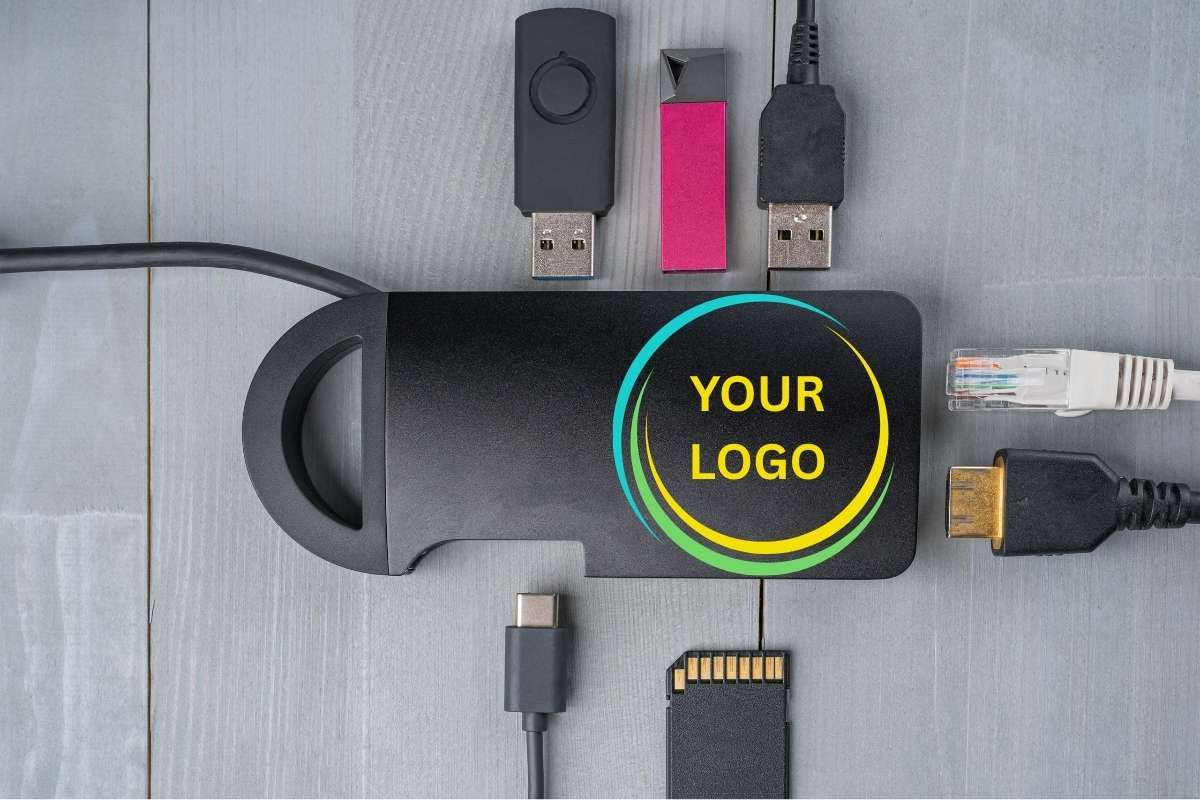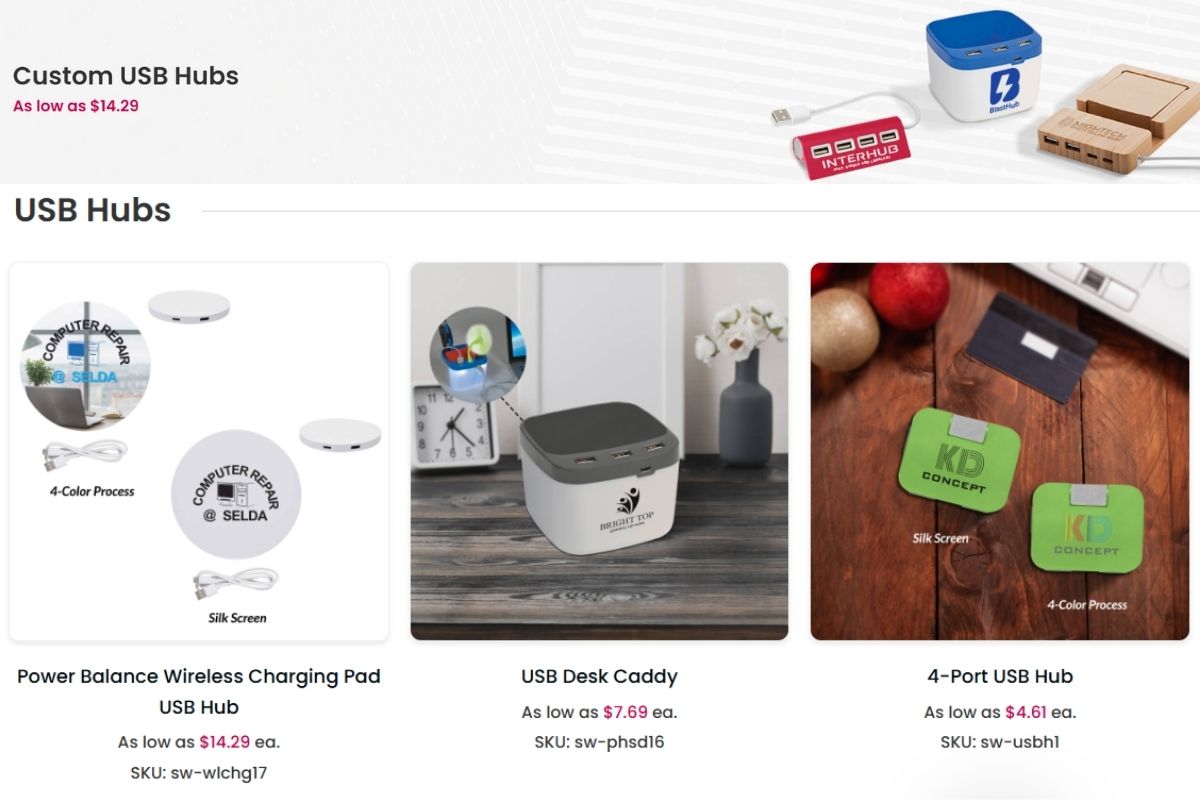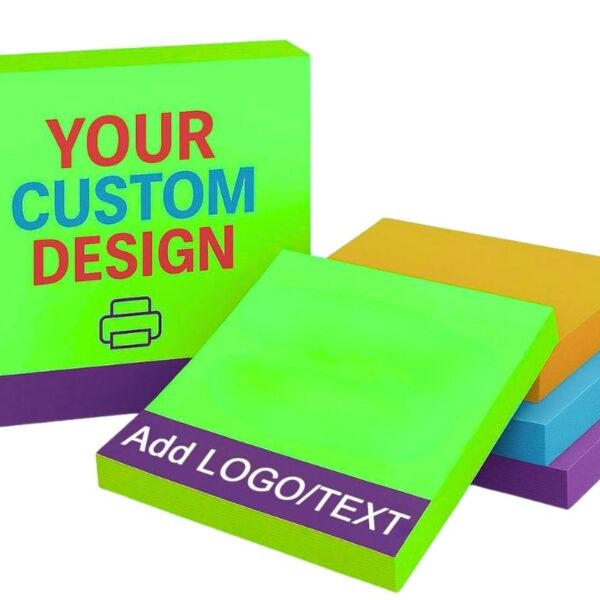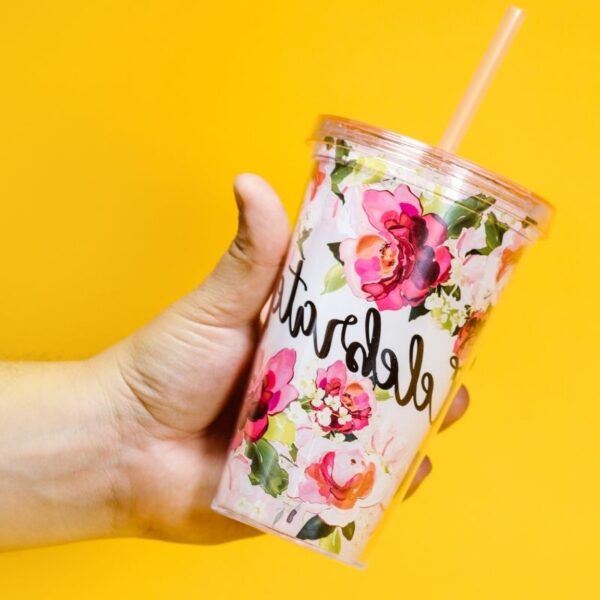In a world where digital devices dominate our personal and professional lives, the need for seamless connectivity has never been greater. USB hubs have become essential tools for expanding the number of ports on laptops, desktops, tablets, and other smart devices. But beyond just functionality, there’s a growing demand for USB hubs that are not only efficient but also personalized—tailored to reflect a brand, purpose, or individual style.
This is where custom USB hubs come in. They combine technology, utility, and personalization to offer a unique experience—whether for branding, marketing, employee onboarding, or even personal use.
Imagine a USB hub that not only expands your ports but also tells your story or promotes your business. That’s the power of customization.
1. Why Choose Custom USB Hubs?
Versatility and Expanded Connectivity
Custom USB hubs serve the same fundamental purpose as standard hubs: they expand the number of USB ports available on a device. But they go a step further by allowing personalization. These hubs can connect a wide array of devices—keyboards, mice, printers, external drives, cameras, smartphones, and more—all through a single interface. Whether you use a MacBook with limited ports or a desktop that needs more accessible connections, USB hubs make device management simpler and more efficient.
A Strategic Tool for Branding and Promotion
In the corporate world, promotional products play a vital role in building brand identity and increasing visibility. Custom USB hubs can be printed with your company’s logo, tagline, or website and handed out at trade shows, tech conferences, product launches, or during customer appreciation campaigns. Every time someone plugs in a device, your brand is right there—visible and useful.
For businesses, especially those in tech, education, marketing, or creative industries, USB hubs offer a practical and professional-looking promotional product that actually gets used.
Personalized Expression for Individuals and Teams
Custom USB hubs aren’t just for businesses. Individuals can design hubs that match their personality or workspace aesthetic. Gamers, content creators, and digital professionals often customize hubs to suit their setups—whether through color schemes, material choices, or even unique shapes.
2. Design and Branding Customization Options
Customization can be done at multiple levels. Below are key aspects where creativity and branding merge.
A. Visual Customization
The visual elements of a custom USB hub are the most immediate way to communicate a brand or personal identity. These include:
- Logo Placement: Your business logo can be added using different printing methods such as screen printing, full-color photo printing, or high-end laser engraving.
- Taglines and URLs: You can also add a business slogan or website to reinforce your brand message.
- Serial Numbers or Individual Names: For companies looking to offer exclusive or personalized gifts, each USB hub can include a unique serial number or the recipient’s name. This is particularly valuable for onboarding kits or recognition awards.
For example, a tech firm may distribute USB hubs to new employees with their names and the company’s core values engraved—instantly combining functionality with brand culture.
B. Material Options
Custom hubs can be made from a variety of materials, each offering a different feel, durability, and aesthetic.
- Plastic: The most common and cost-effective option, often used for large-scale promotional events.
- Aluminum or Stainless Steel: Offers a premium feel, ideal for executive gifts or high-end tech packages.
- Wood, Bamboo, or Recycled Materials: Ideal for environmentally conscious brands. These materials provide a natural and warm look while supporting sustainability initiatives.
For brands looking to promote eco-friendliness, pairing sustainable materials with biodegradable or recyclable packaging creates a consistent message.
C. Shape and Style Innovation
Gone are the days when USB hubs only came in rectangular shapes. Manufacturers now offer custom-molded designs that can reflect a brand’s niche or theme.
- 2D or 3D Custom Shapes: A car company might create a car-shaped USB hub; a gaming brand might mold a hub into the shape of a game controller.
- Textured Finishes and Relief Details: These add tactile and visual interest, making the product memorable.
- Color Coordination: Custom colors aligned with your brand palette ensure visual consistency across marketing materials.
One real-world example is a gaming accessories company that launched a USB hub shaped like a mini gaming console. The product generated buzz and became a collector’s item among fans.
3. Technical Customization Options
| Customization Option | Description | Best For | Available On |
|---|---|---|---|
| Port Configuration | Choose number and type of ports (USB 2.0, USB 3.0, USB-C) | Matching user needs and device compatibility | All USB hub models |
| Logo Printing | Add your company logo using pad, UV, or laser printing | Corporate gifts, giveaways, branding | Plastic, metal, silicone hubs |
| Material & Finish | Select casing materials like plastic, aluminum, bamboo, or rubberized finish | Style, durability, or eco-friendliness | Premium and eco models |
| LED Indicator Light | Add custom-colored LED lights for power or port activity | Visibility and user feedback | Electronic hubs with power supply |
| Custom Cable Length/Type | Choose between built-in, detachable, or extended-length cables | Desk setups, travel needs | USB-A, USB-C, micro USB types |
| Shape & Form Factor | Opt for compact, round, rectangular, or novelty shapes | Space-saving, visual appeal | All casing styles |
| Color Customization | Select body and accent colors to match your brand | Visual branding and appeal | Plastic or silicone bodies |
| Packaging Personalization | Custom boxes, sleeves, or blister packs with your branding | Retail-ready products or premium giveaways | Bulk and retail orders |
| Built-in Features | Integrate card readers, charging ports, or wireless charging pads | Multi-functionality | Premium multifunction hubs |
| Data Transfer Speed Labels | Clearly label ports for USB 2.0 vs USB 3.0 | User guidance and clarity | Multi-speed hubs |
Beyond the outer design, the technical aspects of a USB hub are just as critical, especially when catering to tech-savvy audiences.
A. Connector Types and Port Configuration
Modern USB hubs can support a mix of connectors to accommodate a wide range of devices. These include:
- USB-A: The classic connector used in many peripherals.
- USB-C: Increasingly popular for newer laptops, tablets, and smartphones.
- Micro-USB or Lightning: Suitable for specific mobile devices.
You can also choose how many ports your custom hub offers. Common configurations include 3-in-1, 4-in-1, or even 10-in-1 hubs. The number and type of ports should reflect your target audience’s usage needs.
B. Cable Options
The cable that connects the hub to the device can be customized as well:
- Built-In vs. Detachable: Fixed cables offer convenience, while detachable cables provide flexibility.
- Cable Material: Some companies offer braided or flat cables for enhanced durability and aesthetics.
- Dual-Headed Cables: Ideal for compatibility across devices using both USB-A and USB-C ports.
C. Data Transfer Speed and Power Delivery
- USB 2.0: Suitable for basic peripherals like mice, keyboards, or simple data transfer. Offers speeds up to 480 Mbps.
- USB 3.0 and Higher (3.1, 3.2): These offer speeds up to 5-10 Gbps and are ideal for heavy file transfers, charging, or streaming high-resolution media.
- Power Delivery (PD) Support: Allows devices like laptops and tablets to charge faster through the hub. This is a critical feature for business travelers or remote workers.
Understanding these technical details ensures that your customized hub not only looks great but also performs reliably.
4. Manufacturing and Quality Assurance
When ordering custom tech products, quality is crucial. Poor-quality USB hubs can overheat, slow down data transfers, or even damage devices. Working directly with manufacturers rather than intermediaries provides better control over product quality and design consistency.
Other factors to consider:
- Certifications: Look for safety certifications such as CE, FCC, or RoHS compliance.
- Durability Testing: Ensure the product has been tested for wear and performance over time.
- Warranty Options: Reputable manufacturers offer warranties, often ranging from 6 months to 2 years.
- Minimum Order Quantities (MOQs): Many suppliers allow small batch orders starting from just 10 to 50 units, making custom hubs accessible even for small businesses or personal use.
5. Common Use Cases for Custom USB Hubs
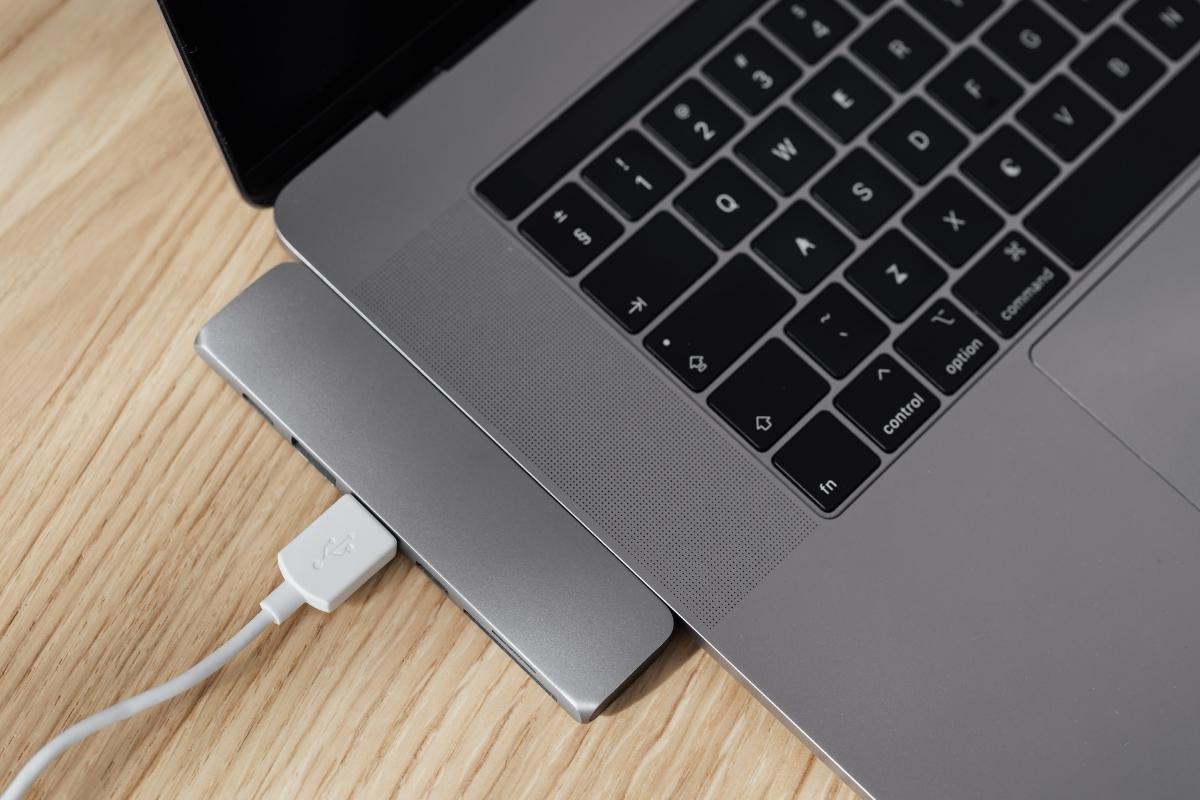
Corporate Branding and Promotions
A custom USB hub can serve as a memorable, useful gift at events like trade shows, product launches, or customer appreciation campaigns. Unlike typical promotional items, USB hubs have lasting value—ensuring your brand remains visible long after the event.
Office and Remote Work Setups
As hybrid and remote work becomes more common, employees need efficient home setups. A company-branded USB hub can make multi-device usage easier and reflect organizational pride.
Personal or Niche Applications
Tech influencers, gamers, YouTubers, and streamers use custom hubs to match the aesthetics of their personal setups. For them, it’s not just about function—it’s also about self-expression.
6. DIY Custom USB Hubs: A Worthwhile Project?
| Factor | DIY Custom USB Hub | Pre-Made Custom USB Hub |
|---|---|---|
| Customization Level | High – full control over ports, layout, design, and casing | Moderate – limited to branding and surface-level options |
| Technical Skill Required | High – requires knowledge of soldering, circuit design, and USB protocols | None – plug-and-play with simple logo upload options |
| Cost | Potentially higher due to prototyping, tools, and sourcing parts | Lower cost per unit, especially for bulk orders |
| Time Investment | Significant – from planning to assembly and testing | Minimal – typically shipped in 5–10 business days |
| Performance & Safety | Risk of instability or damage if not properly built | Certified and tested for safety and efficiency |
| Branding Potential | Fully unique form factors and internal features possible | High-quality logo printing, color matching, and packaging |
| Learning Experience | Great hands-on project for tech enthusiasts | None – better for business or bulk gifting needs |
| Scalability | Difficult to scale – suitable for personal or hobby use | Easily scalable for corporate, retail, or promotional use |
Technical Challenges
Creating a custom USB hub from scratch can be rewarding but is technically demanding. Especially with USB 3.0 and higher, precise PCB design is needed to manage issues like differential signal routing and impedance matching. Without this precision, the hub may suffer from poor performance or incompatibility.
Beginner Alternatives
If you’re interested in DIY but lack advanced electrical skills, consider:
- Using ready-made USB hubs and creating custom casings
- Starting with USB 2.0 hubs, which are less complex
- 3D printing your own hub enclosures for visual customization
These options still allow for personalization without the risks of full hardware development.
7. How to Order Custom USB Hubs
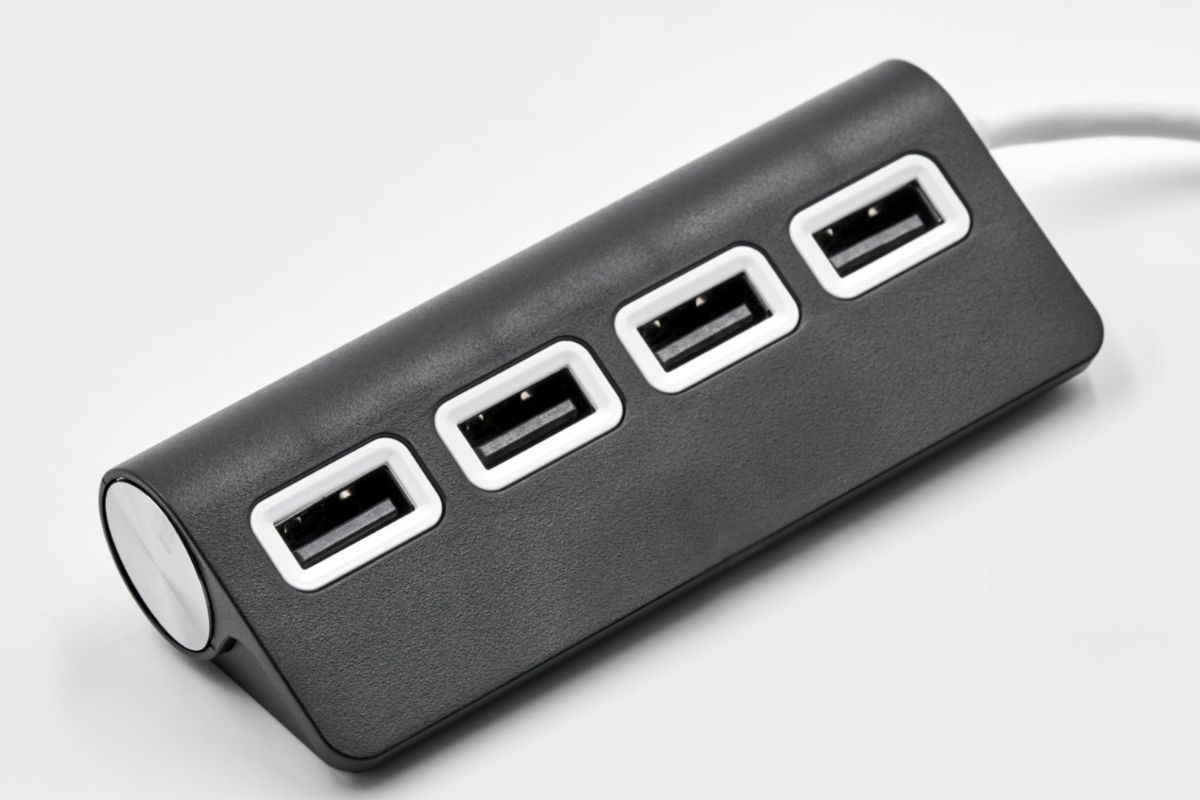
Step-by-Step Ordering Guide
- Identify Your Needs: Determine the number of ports, type of connectors, and intended use.
- Research Manufacturers: Look for trusted suppliers with experience in custom electronics.
- Request Samples: Always ask for a sample before committing to a bulk order to check quality and compatibility.
- Confirm Customization Capabilities: Discuss options for materials, colors, printing methods, and packaging.
- Review Lead Times and MOQs: Some suppliers offer fast production but may have higher MOQs. Match this with your budget and timeline.
Conclusion
Custom USB hubs represent a perfect intersection of technology, utility, and branding. Whether you are a business looking to strengthen brand visibility or an individual aiming to personalize your workspace, custom hubs offer unmatched value and flexibility.
They are functional tools—but more importantly, they’re a canvas for creativity and connection.
Whether for business or personal use, custom USB hubs offer a perfect blend of utility and style.

